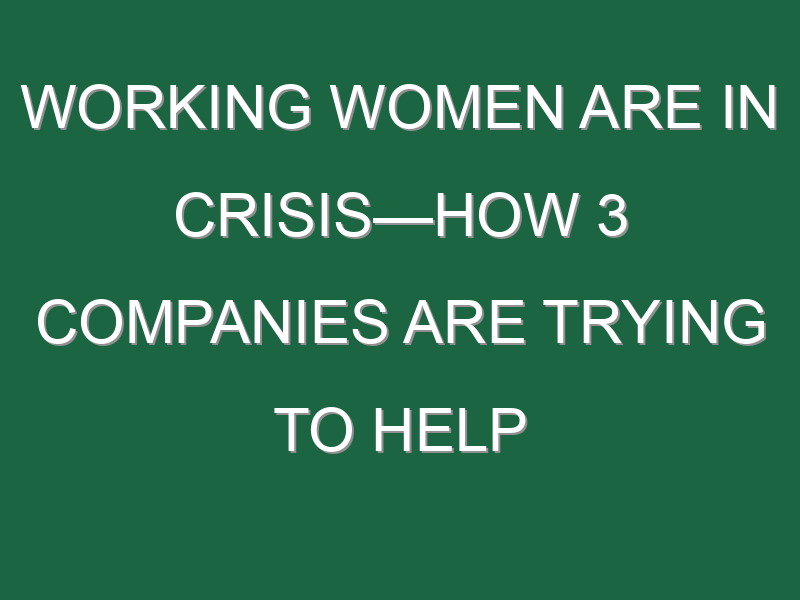Good morning, Broadsheet readers! 23andMe may go public through a SPAC, protests break out over Poland’s abortion ban, and working women are in trouble; what are companies doing to help? Have a relaxing weekend.
– Crisis management. A year ago, working women were riding high. Thanks to a booming labor market and their prevalence in fields like education and health care, female workers surpassed their male counterparts in the U.S. paid workforce, according to January 2020 data.
In a new piece by Emma and Fortune senior writer Maria Aspan, Michael Madowitz of the Center for American Progress, summarizes what happened next: “The whole house burned down.”
Emma and Maria’s story ticks through the data that illustrate just how horrible the pandemic and its accompanying childcare crisis have been for the U.S.’s female workforce:
- 5.4 million women have lost their jobs since last February—55% of all net U.S. job losses in that time period
- Almost 2.1 million women have vanished from the paid labor force entirely
- As of September, there were three working mothers unemployed for every father who had lost a job
- And the whopper: Women accounted for the entirety of all 140,000 net jobs the U.S. economy shed in December.
All told, they write, “the pandemic has set working women back by more than three decades—to levels of labor force participation last seen in 1988.”
Rehashing those numbers is important, but so is what Emma and Maria ask next: What are employers doing about this crisis?
That question turned up a few encouraging answers.
IBM is expanding its ‘returnship’ program that hires and trains women who’ve taken a break from the workforce.
Target is giving all U.S. employees unlimited company-paid in-home or day-care “backup care” through May.
And Verizon retrained 8,000 workers so they could work remotely when lockdowns shut stores. It allowed some of those workers to keep working remotely or work part-time when stores reopened, and the company expanded its paid childcare benefits to $15 per hour and $100 per day.
Christy Pambianchi, Verizon’s chief HR officer, acknowledged that the programs are expensive. But so is turnover, she says. “We think it’s really important that our employees know, and society knows, that we’re here for them.”
For women everywhere to receive that message, we need policy changes—like more affordable childcare—and more company initiatives to add to this list.
You can read Emma and Maria’s full story here.
Claire Zillman
[email protected]
@clairezillman
Today’s Broadsheet was curated by Emma Hinchliffe.




